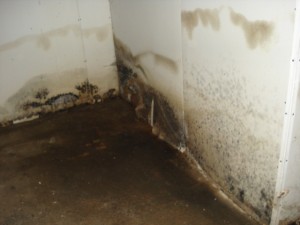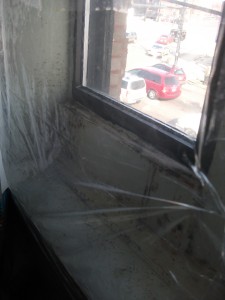 Noisy and problematic neighbors are one of the most difficult issues to solve.
Noisy and problematic neighbors are one of the most difficult issues to solve.
First off, both parties are tenants. Both have rights. These problems range from neighbors selling drugs to throwing an occasional party. It is frustrating for the neighbor who is being disrupted. Complaints about noisy kids, an older adult listening to a loud television or people playing rap music are often signs of a biased complaint. If the complaints appear to be discriminatory or unreasonable in nature, the complainer may not have realistic expectations of apartment living. It requires a certain amount of tolerance.
No ready-made solutions exist for neighbor-to-neighbor problems. The law does not proscribe a process to deal with this situation as it does with the ‘Repair and Deduct’ remedies in the Chicago Ordinance. There are steps the tenant can take to try and resolve the difficulty. Whether any of these methods work depends upon many factors, including the nature of the actual problem, how much the landlord is willing to cooperate and what the tenant is willing to do. The following are suggestions:
Direct Approach
(This approach is not recommended when drug dealing is involved and for cases of a violent neighbor.) First encourage the tenant to talk directly to their neighbor. Often people disturb others without being aware of it and are willing to modify their behavior such as setting quiet times or not wearing wood platform shoes inside. The Center for Conflict Resolution can help mediate these situations. The landlord could possibly be included in the mediation. The other benefit to this approach is that the tenant may find out that the person they suspected of wrong doing may be innocent.
Contact the Landlord
Let the landlord know that s/he has the responsibility to ensure the tenant the quiet, peaceful enjoyment of the premises. The landlord has the power to evict noisy neighbors and drug dealers. They can also install carpeting or some other sort of soundproofing. The landlord has the responsibility to take some action.
Contact Other Tenants
Often noisy neighbors will be disturbing other renters and their support will be helpful in getting rid of a problem tenant. Organize a group of concerned tenants and write a common letter. It will also help build a tenant’s case that the problem is real.Call the PoliceThe police will help to mitigate the very immediate situation. They can warn or arrest the tenant. A police report will also serve to document the tenant’s complaint. By asking the tenant if they have called the police, it will help you and the tenant put the problem in perspective. If they say for example “Oh it’s not that bad,” then I would suggest they try mediation.
Serve the Landlord with Written Notice
If the landlord fails to take any action and other options fail, the tenant can write the landlord and give him/her a minimum of a 14-day notice to comply with their duty to ensure the tenant a reasonable quiet and peaceful premises. The tenant should provide the landlord with a detailed description of the problems and ask the landlord to remedy the situation. In the letter the tenant should ask the landlord for a response as to what action they have taken or will take.
Document the Problem
Encourage the tenant to create a journal detailing days, times and what happened. The tenant may need witnesses to back up their assertions. Friends and neighbors can be witnesses. Should the landlord fail to take any action after being contacted and the problem is a serious one, the tenant could give the landlord a 14-day notice (to be on the safe side the tenant may want to give the landlord a longer notice, say 30 days) under the Chicago ordinance to terminate the lease under section 5-12-110 a. In the letter the tenant should inform the landlord that the situation has rendered the apartment not reasonably fit and habitable. If the tenant does not want to terminate the lease, s/he could also reduce the rent by giving the landlord a 14-day notice to alleviate the situation or else the tenant will reduce the rent to reflect the reduced value of the apartment. As in the case repairs, the tenant should be very conservative in the amount taken off the rent
NOTE: The housing laws do not specifically mention noise and there is no case law on this either way. Attorneys disagree about what rights tenants have under State and Chicago law. Some attorneys believe tenants have no remedies under the law. Caution is advised in counseling tenants with problems. We believe the tenants do have rights but they should be warned that should the courts rule against the tenant he/she could be held financially liable for the duration of the lease. If the tenant is confronted with a possible life threatening situation, let s/he know that the penalties are not automatic. The landlord still needs to take the tenant to court and get a judgment. Tenants complaining about drugs or crime in the building are more likely to succeed in today’s anti-drug and crime hysteria.
If the noise is at a level that can be considered offensive to the general environment, you may be able to seek remedies outlined in 11-4-2740 of the Chicago Municipal Code.


 Noisy and problematic neighbors are one of the most difficult issues to solve.
Noisy and problematic neighbors are one of the most difficult issues to solve.